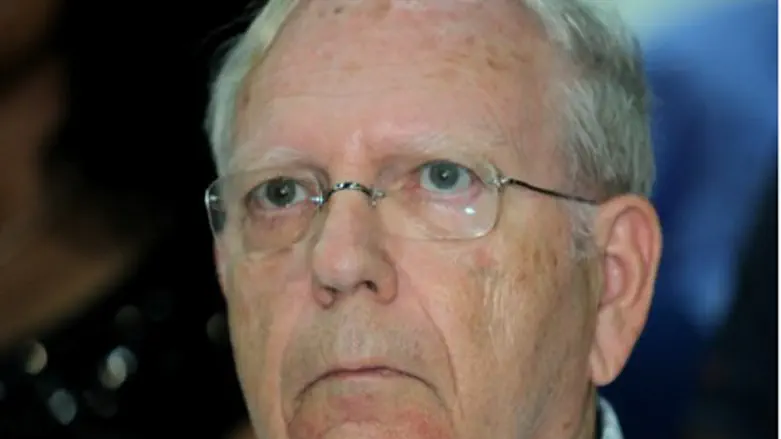
Ephraim HaLevy, the formerly close-mouthed director of the Mossad, who is a critic of Netanyahu and against striking Iran, continues to make up for lost time and speaks out again on Iran, this time criticizing Republican presidential candidate Mitt Romney for making the Islamic Republic's nuclear threat an election issue.
HaLevy also urged direct Washington-Tehran talks on the Islamic Republic’s nuclear development program.
The former Mossad director took potshots at Romney, whom he said has delivered “a heavy blow to the ultimate interests of the United States and Israel."
“Obama has placed emphasis on negotiations,” HaLevy told Laura Rozen, writing for the Al-Monitor website that focuses on Middle East affairs and Arab media.
“In this current election for the U.S. presidency, his hands are tied,” HaLevy reasoned. “He cannot proceed, because he cannot appear soft on Israel’s security.
“Negotiating with Iran is perceived as a sign of beginning to forsake Israel. That is where I think the basic difference is between Romney and Obama. What Romney is doing is mortally destroying any chance of a resolution without war. Therefore when [he recently] said, he doesn’t think there should be a war with Iran, this does not ring true. It is not consistent with other things he has said.”
HaLevy also took the opportunity to speak out negatively against Prime Minister Binyamin Netanyahu. “He does not induce confidence [in the Israeli public]. He is invoking Auschwitz twice a week. He has created a situation in which he’s ‘damned if he did, damned if he didn’t’ bomb Iran, since he created such a buildup,” HaLevy concluded.
Concerning American attempts to "engage" Iran, he told several media outlets Sunday that direct discussions would help the United States understand its enemy better. HaLevy previously has upset most Israeli political and military officials by public ridiculing any idea that the IDF could successfully attack Iran, a move he has said would be a “disaster.”
“I was 40 years in the business of dealing with adversaries — some of them very bitter ones,” he told Rozen. “I realized that, in order to be effective with one’s enemies, you have to have two essential capabilities: To overcome them by force if necessary … And do everything you can to get into their minds and try to understand how they see things … and where, if at all, there is room for common ground of one kind or another.
“I think that what we have had over the years is an abundance of one side, and a dearth of the other.”
HaLevy believes that Iran would like to find a way out of what has become a tightening noose as a result of Western economic sanctions. “They are beginning to really hurt,” he said. Netanyahu said in the United Nations that sanctions hurt the Iranian people, but have no effect on the nuclear program.
He argued that not talking with an enemy does not make them illegitimate, while “there is nothing to lose” by establishing dialogue.
“What has happened, in order to meet public opinion, both Israel and the U.S. governments have tied our own hands,” Halevy said. “In the end, you create an inherent disadvantage for yourself… “You have to understand what it is that makes Iran tick.”
HaLevy’s comments came two days after The New York Times reported that the Obama administration has reached an agreement with Iran for direct talks, but the report quickly was denied and apparently referred to back-channel talks that, according to Strategic Minister Moshe Ya’alon, are no secret.
During the interview, HaLevy said that his view that “engaging” the enemy in dialogue also should have applied to Hamas but that it is “too late now” because “In order to meet public opinion, both Israel and the U.S. governments have tied our own hands. There is a law…which prohibits U.S. officials from talking to Hamas…In the end, you create an inherent disadvantage for yourself.”
